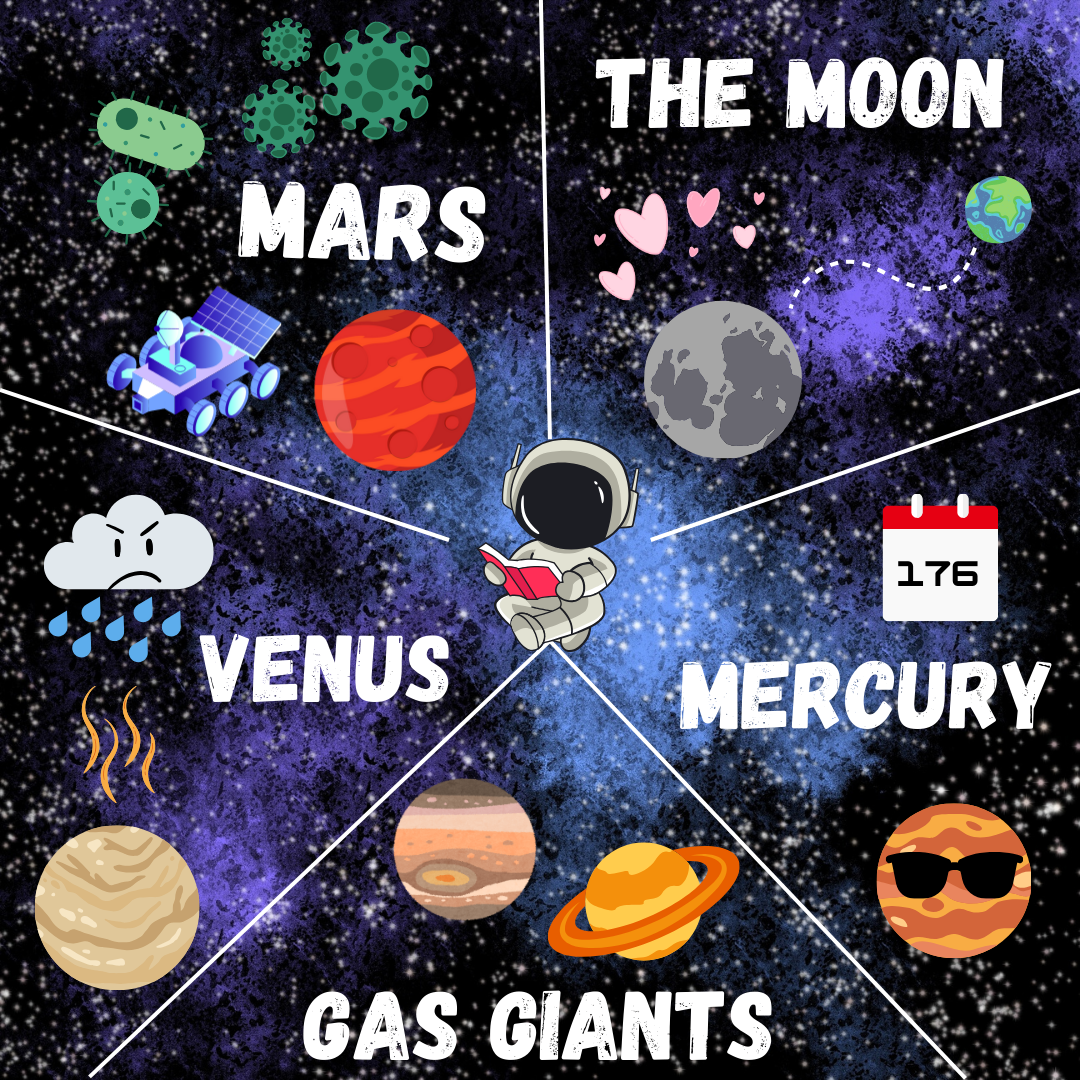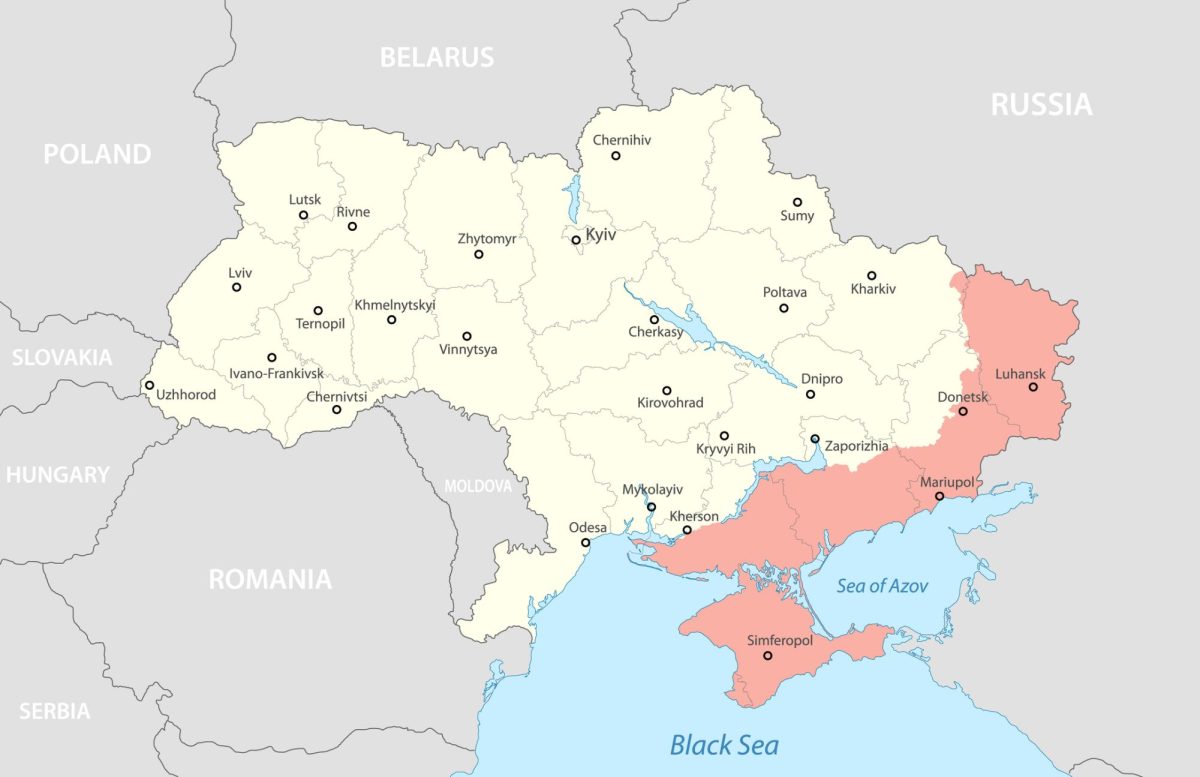“Star Trek” has popularized the idea that space is the “final frontier” for human expansion, and people like Elon Musk aim to make this a reality. Yet human colonists on other planets will still need to learn, and we already have the means for long-distance education: remote learning.
There’s a lot of different planets in our solar system; after we send humans to Mars, wouldn’t we want to settle Venus or Jupiter’s moons too?
Today’s poll asks students a fun hypothetical: if they had to go to outer space to learn, assuming they could survive, on which planet would Huskies prefer to learn remotely?
MERCURY
Mercury is the closest planet to the Sun. In fact, the Sun appears three times larger on Mercury than on Earth, and is seven times brighter, according to NASA.
While you would need stronger sunglasses, the Sun would be easier to observe with a telescope from the surface of Mercury. Anyone interested in astronomy might want to take note.
Years on Mercury last only 88 Earth days, about a quarter of the length of an Earth year. However, days are twice as long as years on Mercury: a stunning 176 Earth days!
Shorter years on Mercury would mean shorter breaks, but also shorter semesters. As a result, college students might get brief breaks more frequently, rather than infrequent but long breaks.
VENUS
While Mercury is closer to the Sun, Venus is the hottest planet in our solar system and one of the brightest objects in the sky, according to NASA. Not only that, but its atmospheric pressure is nearly 100 times greater than Earth’s, and it rains sulfuric acid.
Don’t think you’ll be getting “acid rain days” off, however. Venus’ rain never reaches its surface; it’s so hot that the rain evaporates while it is falling!
Hot as Venus is, it is also one of the few planets in our solar system that isn’t much colder than Earth. Anyone who prefers warmer environments might find remote learning here more agreeable.
THE MOON
The Moon is the only other celestial body that humans have set foot on, primarily because it is so close. While living in space is a cool concept, some people might want to be a little closer to home, and travel between Earth and the Moon only takes a few days.
Not only that, but the time delay for messages between Earth and the Moon is only a few seconds; they are that close! Every other planet or moon in our solar system would require minutes to hours for an email to arrive.
Any students worried about being homesick might find the Moon to be a perfect choice for extraterrestrial remote learning.
MARS
Mars is the planet humans are most likely to expand to next and the most likely to support human life in the solar system besides Earth.
Mars has been obsessed over for years; we even thought it had alien life! While lanky, gray-skinned Martians might not exist, Mars is one of the most habitable planets in the solar system, not to mention one of the closest to Earth.
Astronomers believe that Mars isn’t completely devoid of life, but any potential alien “classmates” humans would have would be bacteria, according to NASA.
GAS GIANTS
We might not be able to step foot on gas giants like Jupiter and Saturn, but these massive planets have a large number of moons orbiting them. Saturn’s Titan in particular is one of the best candidates for human colonization in our solar system and could theoretically support alien life, though no evidence of living organisms has been found yet, according to NASA.
The view from the moons of gas giants would be spectacular too. Saturn’s rings, the Great Red Spot of Jupiter, and Uranus’ sideways rotation are some of the wonders that can be found out in space.
And maybe one day, humans will be able to build floating cities in the atmosphere of these gas giants like Bespin from “Star Wars.”
OTHER
There are many other celestial bodies besides the planets listed above. Pluto, for example, is the most famous dwarf planet in our solar system, and there are more besides it, such as Ceres.
Maybe you don’t want to live on Mars, but one of its moons? Maybe you would prefer something even smaller, like an asteroid? Maybe you would prefer to leave rocks behind entirely and live in a space station colony instead?
It seems likely that humans will one day leave Earth for other worlds. Once we become capable of that, we could go anywhere we want, maybe even other stars!
Results from last week’s poll: What’s the best classic board game?
Chess — 42%
Checkers — 11%
Backgammon — 5%
The Game of Life — 26%
Clue — 16%




















